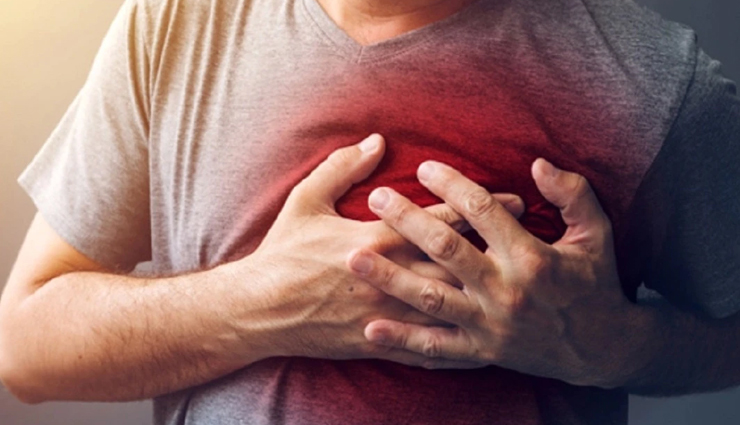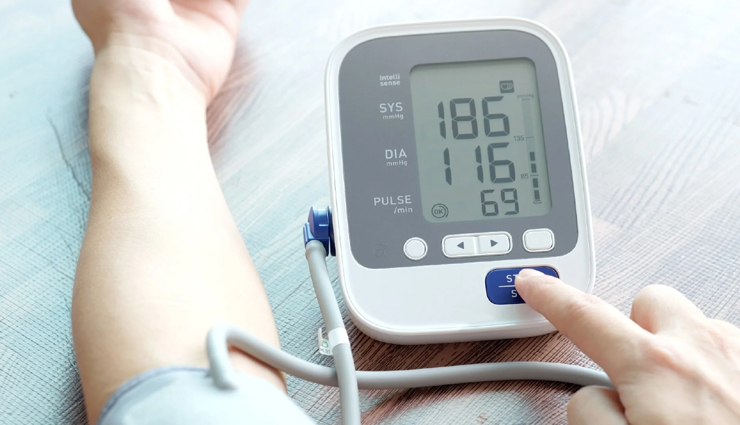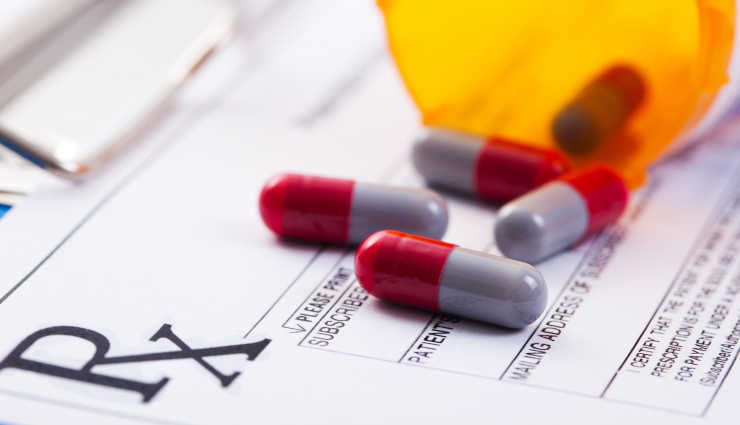- Home›
- Healthy Living›
- World Hypertension Day- 10 Major Causes That Leads To Hypertension
World Hypertension Day- 10 Major Causes That Leads To Hypertension
By: Priyanka Maheshwari Fri, 17 May 2024 1:05:06

Hypertension, commonly known as high blood pressure, is a prevalent medical condition characterized by elevated pressure in the arteries. It's often dubbed the "silent killer" because it typically presents with no symptoms, yet it significantly increases the risk of serious health complications, including heart disease, stroke, kidney failure, and other cardiovascular disorders.
Blood pressure is the force exerted by the blood against the walls of the arteries as it circulates through the body. It consists of two measurements: systolic pressure, which represents the pressure when the heart beats, and diastolic pressure, which indicates the pressure when the heart rests between beats. Blood pressure is measured in millimeters of mercury (mmHg), and a normal reading is typically around 120/80 mmHg.
Hypertension occurs when blood pressure consistently exceeds the normal range. The condition can be categorized into two main types: primary hypertension, which develops gradually over time with no identifiable cause, and secondary hypertension, which arises as a result of an underlying medical condition or medication.
Despite its often asymptomatic nature, hypertension is a significant public health concern worldwide. It affects millions of individuals of all ages, genders, and ethnicities and is a leading risk factor for premature death and disability globally.
Managing hypertension involves a multifaceted approach, including lifestyle modifications, such as adopting a healthy diet, engaging in regular physical activity, maintaining a healthy weight, limiting alcohol intake, and managing stress. In addition to lifestyle changes, medication may be prescribed to control blood pressure and reduce the risk of complications.

# Genetics: Family history plays a significant role in hypertension. If your parents or close relatives have high blood pressure, you might be more predisposed to develop it.

# Unhealthy Diet: Consuming foods high in salt, saturated fats, and cholesterol can contribute to hypertension. Additionally, not having enough fruits, vegetables, and whole grains in your diet can also increase your risk.

# Obesity or Overweight: Excess weight puts extra strain on your heart and increases your blood pressure. Obesity is often associated with other risk factors like unhealthy diet and lack of exercise.

# Smoking and Alcohol: Tobacco and excessive alcohol consumption can raise blood pressure. Nicotine in cigarettes narrows blood vessels and increases heart rate, while alcohol can raise blood pressure and damage the walls of blood vessels over time.

# Stress: Chronic stress can contribute to hypertension. When you're stressed, your body releases hormones that temporarily increase your blood pressure. If stress is ongoing, it can contribute to long-term hypertension.

# Age: Blood pressure tends to increase with age as blood vessels become less elastic. This makes it more common in older adults.

# Chronic Conditions: Certain chronic conditions, such as kidney disease, diabetes, and sleep apnea, can contribute to hypertension. Treating these conditions can help manage blood pressure.

# Medications and Supplements: Some medications, such as nonsteroidal anti-inflammatory drugs (NSAIDs), decongestants, and birth control pills, can raise blood pressure. Certain dietary supplements, such as ephedra and licorice, can also have this effect.

# Hormonal Factors: Hormonal imbalances, such as those associated with thyroid problems or hormonal contraceptives, can contribute to hypertension.

# Lack of Physical Activity: Sedentary lifestyles contribute to hypertension. Regular physical activity helps control weight, strengthen the heart, and lower blood pressure.





